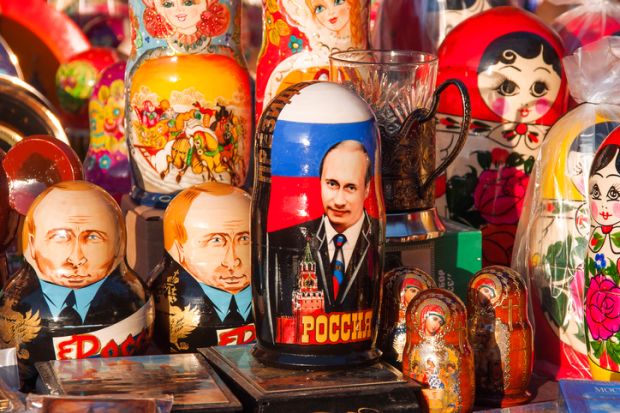The Russian Union of Rectors has backed the Kremlin’s official line on Ukraine, supporting what has become an increasingly bloody invasion.
Nine days after Russia’s unprovoked invasion of a sovereign country, the group representing more than 700 rectors and university presidents backed its government’s version of events.
“This is Russia’s decision to finally end the eight-year confrontation between Ukraine and Donbas, achieve the demilitarisation and denazification of Ukraine, and thereby protect itself from growing military threats,” write the rectors, echoing propaganda used by the Kremlin to justify what it calls a “special operation” in Ukraine.
In a step further, they urge support for Russian troops and Russian president Vladimir Putin.
“It is very important in these days to support our country, our army, which defends our security, to support our president, who, perhaps, made the most difficult, hard-won but necessary decision in his life,” they write.
The rectors say it is important to carry out their “main duty”, to conduct education and “to instil patriotism in young people, the desire to help the motherland”.
The letter includes more than 180 signatories, with heads of top Russian institutions, such as Moscow State University and Saint Petersburg State University, among them.
Its publication came a day after the International Criminal Court’s top prosecutor said it would investigate Russia’s role in possible crimes against humanity in Ukraine, and as Russian forces intensified their shelling of civilian and residential areas.
The rectors’ statement triggered condemnation from academic leaders in Europe.
Rik van de Walle, rector of Ghent University, called the letter “extremely problematic”, although he was incredulous that all of its signatories would genuinely support it.
“I cannot believe this is the sincere opinion of all rectors involved. Yet at the same time we cannot accept statements like this,” he said, adding that the rectors’ position “cannot but lead to the suspension of cooperation with the institutions concerned”.
On 7 March, the European University Association – the continent’s largest university lobby – announced it had suspended 12 member institutions whose heads had signed the letter, which it said was “diametrically opposed to the European values that they committed to when joining EUA”.
Many universities have already cut ties with their Russian counterparts. On 3 March, the European Commission said it would suspend any planned grants for Russian institutions under the European Union’s Horizon Europe research programme and would not “engage into further cooperation projects with Russian entities”.
For any institutions who remain on the fence or supportive of continued collaboration with Russia, the rectors’ stance does little to help their defence.
“Cooperating with universities or other institutions that, forced or not, place themselves or are placed at the service of the Russian president, the Russian regime and/or the Russian army, is simply impossible,” said Professor van de Walle.
